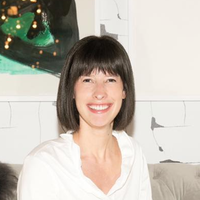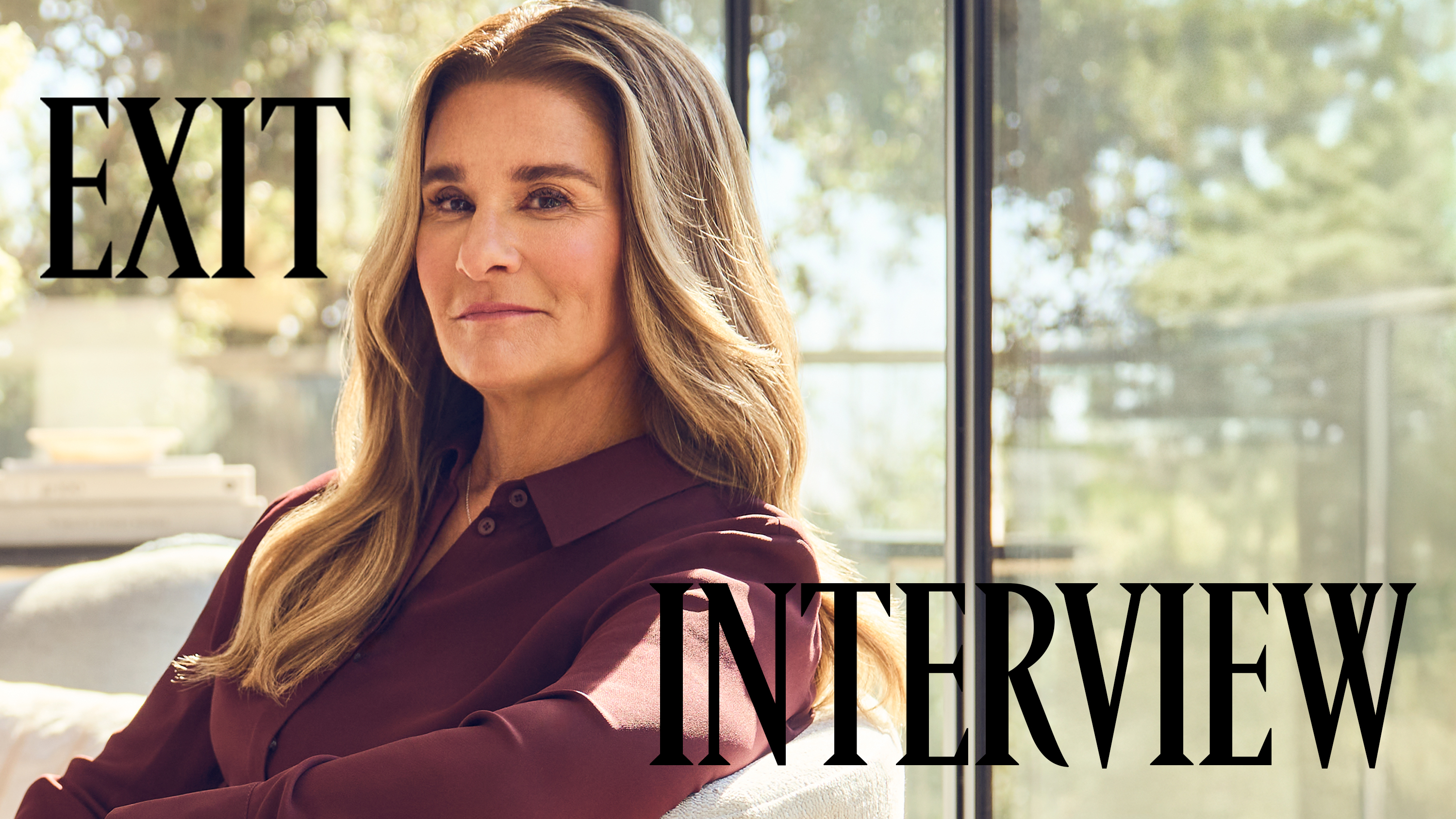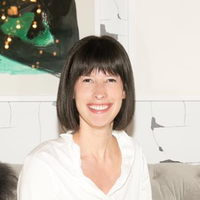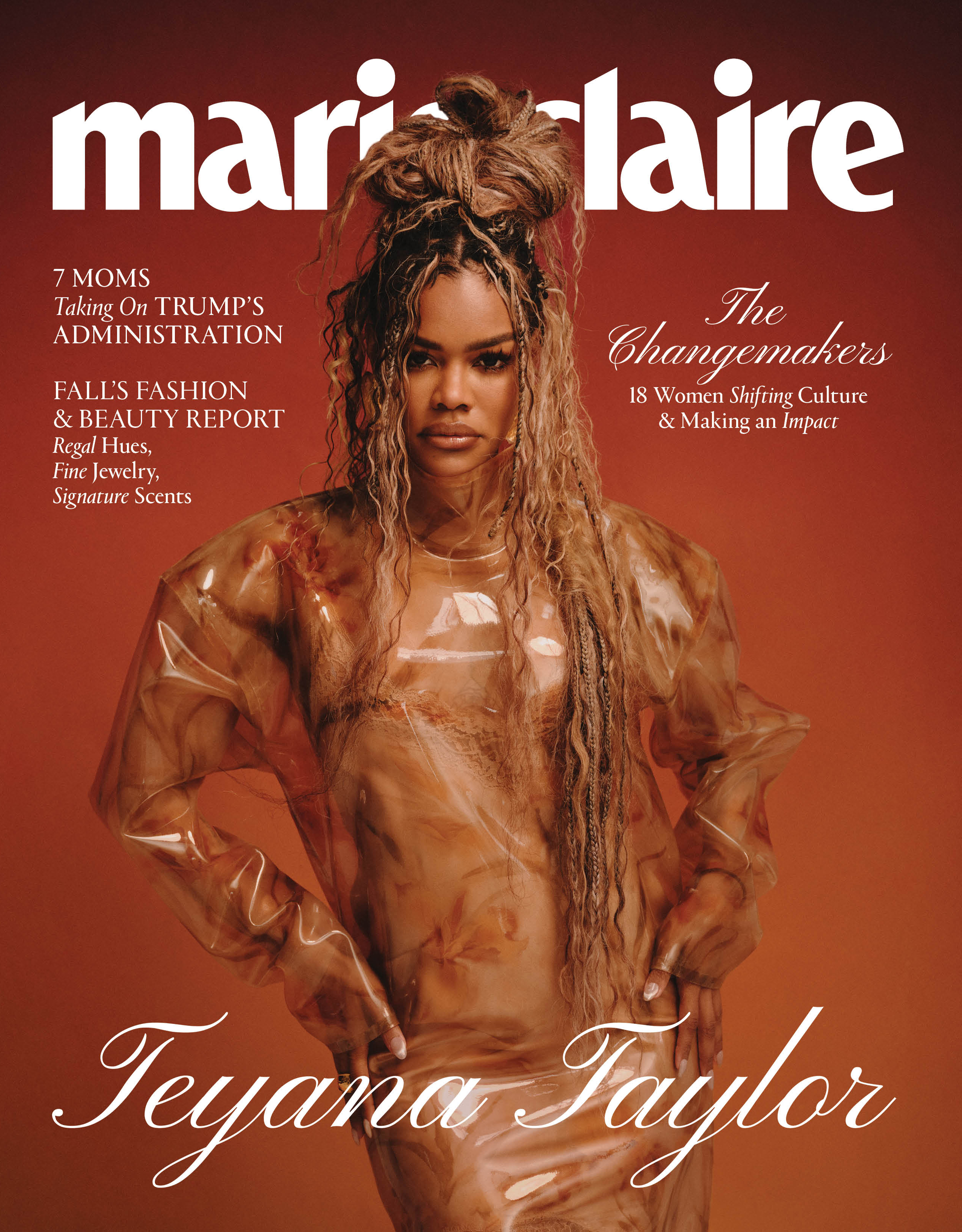Melinda French Gates Knows Exactly How Her Career Ends
One year since the philanthropist left the Gates Foundation, she’s still figuring things out—but there’s one cause she’s committed to for life.


Select the newsletters you’d like to receive. Then, add your email to sign up.
You are now subscribed
Your newsletter sign-up was successful
Want to add more newsletters?

Delivered daily
Marie Claire Daily
Get exclusive access to fashion and beauty trends, hot-off-the-press celebrity news, and more.

Sent weekly on Saturday
Marie Claire Self Checkout
Exclusive access to expert shopping and styling advice from Nikki Ogunnaike, Marie Claire's editor-in-chief.

Once a week
Maire Claire Face Forward
Insider tips and recommendations for skin, hair, makeup, nails and more from Hannah Baxter, Marie Claire's beauty director.

Once a week
Livingetc
Your shortcut to the now and the next in contemporary home decoration, from designing a fashion-forward kitchen to decoding color schemes, and the latest interiors trends.

Delivered Daily
Homes & Gardens
The ultimate interior design resource from the world's leading experts - discover inspiring decorating ideas, color scheming know-how, garden inspiration and shopping expertise.
In Exit Interview, Marie Claire has a candid conversation with someone who has left their job. We learn all about their experience—both the good and bad—plus why they decided to leave and what life looks like on the other side. Here, we talk with Melinda French Gates about her new ambitions, the secret benefit of transitions, and the Monday morning tradition she's been doing for 30 years.
Tell me about your decision to move on from the Gates Foundation.
It was a difficult one. But I knew I could have more impact by stepping away to focus on other issues, many of which were outside the foundation’s scope. As I kept seeing women’s rights rolled back, I started to think differently about the last chapter of my career. I am simply not willing to accept that my granddaughters could grow up with less freedom than I did. And so I stepped away from the foundation because I wanted to devote all my time and resources to that fight. There are so many brilliant leaders committed to advancing women’s rights, but they don’t have as much support as those committed to reversing them do. My intention is to help even the playing field. I am going to spend the rest of my life trying to get more power in women’s and girls’ hands.
Whom did you turn to for advice as you prepared for your new chapter?
For the past 30 years, I’ve kept a standing date on Monday mornings to go walking with three of my best friends. We’re strict about it. If you’re in town, you’re there. I call them my truth council, because we consult each other about almost every major decision in our lives. That word truth is key. I have to be willing to tell them the truth about what I’m thinking and feeling. And then I know that they’ll tell me the truth, even if it’s a hard one I won’t want to hear. We all need people like that in our lives—people who know us deeply and will help us stay true to ourselves.
I am going to spend the rest of my life trying to get more power in women’s and girls’ hands.
Can you explain what Pivotal Ventures is and why it was your next step?
I created Pivotal in 2015 to start working on issues that were important to me but didn’t align perfectly with the foundation’s work. We’ve built really strong relationships with organizations working on issues ranging from improving adolescent mental healthcare to supporting caregivers to helping women rise to positions of power. So it was a no-brainer that Pivotal would be the center of my philanthropy in this next chapter.
Get exclusive access to fashion and beauty trends, hot-off-the-press celebrity news, and more.
What’s a lesson you learned in your last role that you’re bringing with you?
When I first got started in philanthropy, I had a much narrower definition of what it means to be an “expert” in something. I sought out the people who had studied the issues we worked on, and only over time did I realize how important it was to be seeking out the people who were living those issues, too. When I traveled for the foundation and sat down with women all over the world, I realized that as much as I cared—and still care—about grounding our work in data, the stories behind the statistics matter, too. That’s why, at Pivotal, we’re trying a lot of things to invite in more perspectives. We have a deep respect for expertise, but also a much wider definition of what expertise means.
How do you feel about life transitions?
One lesson I’ve learned about transitions—and there’s a chapter in my new book, The Next Day, about this—is not to rush them. I didn’t always think this way. I have always been a dedicated planner. I kept lists for everything, and I did that because I had so many things I wanted to achieve. But gradually I started to see how limiting that approach actually was. If you’re always going from one thing to the next according to a preconceived plan, you never look up, look around, and see the world from a different perspective. Transitions force you to pause. And if you linger in that wide-open space between chapters and pay attention, they have a lot to teach you. I’m still in my current transition, so I’m still learning how I will grow this time. I want to meet new people, learn new things, stay open to new possibilities, and see what happens.
If you’re always going from one thing to the next according to a preconceived plan, you never look up...Transitions force you to pause.
Does anything scare you about this next phase of your work?
The stakes are so, so high. Will women have the freedom to make decisions about their health? Will women get the support they need to care for their loved ones and earn a living? As AI continues to play an increasingly prominent role in our daily lives, will the technology be developed by people who understand women’s lives? The list of really important questions goes on and on. So, yes, it can be daunting, but I’m optimistic about our ability to make progress, because I see it happening every single day.
What advice would you have for someone who is looking to take a leap?
My book starts with one of my favorite stories, from the spiritual leader Ram Dass: There were two waves traveling through the ocean, one big and one small. As they get closer to land, the big wave sees what’s about to happen. The waves ahead of them are crashing on the shore. The big wave warns the small wave that the end is near, but the small wave says, “Don’t worry, we’ll be fine. You’re not a wave. You’re water.” I love that story because it captures what it’s like to experience an enormous transition without losing the core of who you are.
This article appears in the 2025 Changemakers Issue.

A former features director at Cosmopolitan, and the current executive editor of Marie Claire, Andrea reports on politics, people, culture, social trends, physical and mental health, and more.
